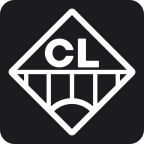On May 16, Apple published a news release on its website describing how much it has invested in European suppliers in recent years. Apple singled out Trumpf for its key role as a VCSEL supplier.
TRUMPF Photonic Components, the global leader in VCSEL and photodiode solutions for consumer and industrial sensing, have been singled out by Apple as a key supplier because of their support for proximity sensors in the iPhone, according to reports.

(Photo credit: official website of Apple)
Apple noted that Trumpf is one of the world's leading manufacturers of lasers, machinery and industrial technology. Trumpf's high-tech components have been used in several Apple products, including a small laser used to activate the iPhone's proximity sensor.
The iPhone's proximity sensor turns off the screen when it detects an approaching object, such as when the iPhone is held up to the user's ear, which saves battery power and prevents miscontact.
More than 1 billion VCsels have been delivered to Apple
Berthold Schmidt, CEO of Trumpf Optoelectronic Devices, said, "We have delivered more than 1 billion of our vertical-cavity surface-emitting lasers (VCsels) to Apple. It's great to see our components being widely used in everyday life and achieving great experiences."
Trumpf's high-tech components have long been used in a range of Apple products, and Future's collaboration with Apple on future laser technology will continue to move forward. Trumpf revealed that it will expand its German production base and further strengthen investment. "This success points to the tremendous potential of our VCSEL technology. As a result, we plan to expand our manufacturing base in Ulm, Germany by another 750 square meters next year to ensure high volume manufacturing of high-end laser components for our customers." Berthold Schmidt.
Since taking over the business in 2019, Trumpian has invested more than 40 million euros in the high-end facility. With state-of-the-art manufacturing equipment, Trumpf has implemented a new technology platform to guarantee highly reliable processes and high-performance laser components. Further investments over the next five years could amount to tens of millions of euros, depending on how the project develops.

(Photo credit: official website of Apple)
Trumpf has extensive experience in VCSEL research and development, providing semiconductor laser (VCSEL) and photodiode solutions for the consumer electronics, data communications, automotive, industrial sensing and heating markets. To date, it has shipped well over 2 billion VCSEL chips and photodiodes. The technology, which has a long history, was acquired by Trumpf in 2019.
Trumpf Photontonic Components, a subsidiary of Trumpf Photontonic Components, is a global leader in VCSEL and laser diode (PD) solutions and is well positioned for longer wavelength VCSEL solutions. At last year's OFC event, the company made a big deal out of its 850-nanometer (nm) portfolio and announced that it is launching VCSEL sensors with wavelengths up to 940 nm.
In April, Trumpf also demonstrated excellent results in efficiency for infrared lasers with wavelengths over 1300 nm on an industrial-scale manufacturing platform, which brings Trumpf a step closer to mass production of indium phosphide (InP) VCsels in the 1300 nm-2000 nm range.
Apple and VCSEL's "indissoluble Bond"
Compared to traditional lasers, VCsels make packaging extremely simple, more durable and compact, and their production is more predictable and cheaper to manufacture. From the perspective of application, VCSEL technology can be widely used in a variety of fields of sensing, imaging, scanning and ranging applications. According to statistics from Yole Developpement, iPhone used to consume tens of millions of VCsels a year, which undoubtedly became an important factor in the growth of the VCSEL market.
In addition, Apple is willing to integrate VCSEL in various products, which also promotes the commercial application of VCSEL laser. Commercial use of VCSEL dates back to the mid-1990s, when Apple began using VCSEL lasers for mouse sensors. VCSEL's real mass adoption came in 2017, when Apple started using VCSEL lasers in its iPhone X Face ID module, which used three VCSEL chips in each iPhone X. Besides Lumentum and Coherent, Trumpf is the other big player in the VCSEL market, statistics show.
Focusing on innovation, Apple joined hands with European suppliers
Apple announced that its spending on European suppliers had increased by more than 50 percent since 2018, totaling 85 billion euros over the past five years and more than 20 billion euros in 2022 alone. These investments involve more than 4,000 European suppliers and support cutting-edge innovation in every product Apple makes, from sensors in the Apple Watch to lasers in the iPhone to microcontrollers in the Mac. These investments will also help boost the environmental transformation path of European industry, as Apple aims to make its entire supply chain carbon neutral by the end of the decade.
Apple says its suppliers in Europe range from large multinational companies to small, family-owned businesses. Some companies have been working with Apple for more than 30 years, and new companies join Apple's supply chain every year, all of which are innovation leaders in their fields. In addition to Trumpian, Apple also named STMicroelectronics, Ams of Austria, DSM Engineering Materials of the Netherlands and Infineon of Germany as several well-known European companies.
Source: OFweek









